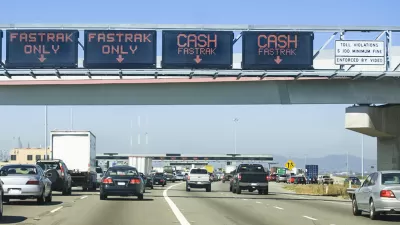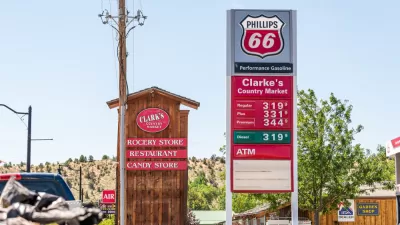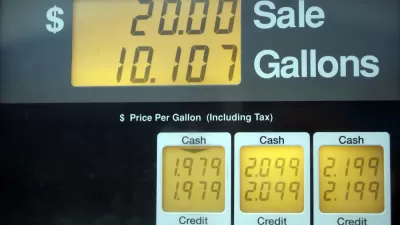How will motorists who don't pay gas taxes fund road upkeep? That's one of the questions that the Senate Environment & Public Works Committee hopes to answer this summer as they work to reauthorize the FAST Act before it expires on Sept. 30, 2020.

The Senate Environment and Public Works Committee held a public hearing on July 10 entitled, “Investing in America’s Surface Transportation Infrastructure: The Need for a Multi-Year Reauthorization Bill.” The current five-year, $305 billion, transportation reauthorization law, called the Fixing America’s Surface Transportation or FAST Act, was signed by President Obama on Dec. 4, 2015, and runs through September 2020, which is also when the Highway Trust Fund becomes insolvent.
"Today's hearing is about the need for this committee to draft and to pass a bipartisan, highway infrastructure bill," stated the chair of the committee, Sen. John Barrasso (R-Wyo.), after gaveling the meeting to order [at 00:18:40 on the webcast].
"Barrasso...said...that he and ranking member Sen. Tom Carper [D-Del.] are committed to finding a way to 'responsibly pay for the legislation,'” reports Andrea Noble
Carper ... said funding needs to ultimately switch to a vehicle-miles traveled approach. “That’s maybe about 10 years from now,” he said.
That approach, also called a road usage charge, has been operational on a limited basis in Oregon since 2015. Similar to a gas tax, the charge or fee would be far more equitable than a registration fee as it would be proportional to usage. However, progress on the state level has been painfully slow. The Congressional Research Service attributes the payment method's difficulties to "privacy, implementation, and collection cost issues," according to their June 4 paper, "Reauthorizing Highway and Transit Funding Programs [pdf]."
Utah's Road Usage Charge offers a choice
Related in Planetizen:
-
Trump's 25-Cent Infrastructure Tax? February 18, 2018
-
Death of the Federal Transportation User Fee, December 7, 2015
-
Transportation Reauthorization Now a Done Deal, December 3, 2015
Hat tip to Streetsblog California.
FULL STORY: Key Senators Pledge to Move on Federal Highway Bill This Summer

Planetizen Federal Action Tracker
A weekly monitor of how Trump’s orders and actions are impacting planners and planning in America.

Maui's Vacation Rental Debate Turns Ugly
Verbal attacks, misinformation campaigns and fistfights plague a high-stakes debate to convert thousands of vacation rentals into long-term housing.

Restaurant Patios Were a Pandemic Win — Why Were They so Hard to Keep?
Social distancing requirements and changes in travel patterns prompted cities to pilot new uses for street and sidewalk space. Then it got complicated.

In California Battle of Housing vs. Environment, Housing Just Won
A new state law significantly limits the power of CEQA, an environmental review law that served as a powerful tool for blocking new development.

Boulder Eliminates Parking Minimums Citywide
Officials estimate the cost of building a single underground parking space at up to $100,000.

Orange County, Florida Adopts Largest US “Sprawl Repair” Code
The ‘Orange Code’ seeks to rectify decades of sprawl-inducing, car-oriented development.
Urban Design for Planners 1: Software Tools
This six-course series explores essential urban design concepts using open source software and equips planners with the tools they need to participate fully in the urban design process.
Planning for Universal Design
Learn the tools for implementing Universal Design in planning regulations.
Heyer Gruel & Associates PA
JM Goldson LLC
Custer County Colorado
City of Camden Redevelopment Agency
City of Astoria
Transportation Research & Education Center (TREC) at Portland State University
Jefferson Parish Government
Camden Redevelopment Agency
City of Claremont





























